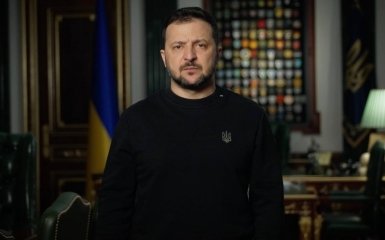Russian President Vladimir Putin, during a press conference on December 19, proposed to the West the idea of a "duel" with the Oreshnik medium-range ballistic missile. Ukrainian President Volodymyr Zelensky responded to this cynical proposal.
Points of attention
- Ukrainian President Zelenskyy condemns Putin's proposal for a 'duel' involving the Oreshnik missile, highlighting the seriousness of the situation.
- Putin stands by the Oreshnik as a modern Russian missile, dismissing claims of its Soviet origins, sparking international concern.
- The escalating tensions between Putin and Zelenskyy raise questions about the stability of the region and the potential for further conflict.
- Putin's proposal for a high-tech 'duel' in Kyiv exposes the underlying power dynamics and strategic maneuvering between Russia and the West.
- The international community closely watches the developments between Russia and Ukraine, with implications for global security and diplomatic relations.
Zelenskyy reacted sharply to Putin's nonsense
Zelenskyy said that Putin's words once again prove what kind of "scumbags" Ukraine is fighting.
He spoke about this at a press conference.
Putin said it was a technological duel. He says we'll hit Kyiv with Oreshnik somewhere, and let them put up air defenses and see what happens. Do you think this is an adequate person? Just scumbags.

Volodymyr Zelenskyy
President of Ukraine
On Putin's new threats to strike with "Oreshnik"
As for the Oreshnik medium-range ballistic missile, Putin continues to insist that it is supposedly a modern Russian development.
"Everything that is done is based on some previous achievements, and then people take a step forward," the Russian dictator commented on the thesis that the "Oreshnik" is a modernization of Soviet missiles.
He also tried to refute the idea that the Oreshnik could be easily shot down on its initial flight path. But he suggested that this could be verified if the Americans decide to deploy THAAD systems (a missile defense system for transatmospheric interception of medium-range missiles) to Ukraine.
Here, Putin also hinted at "our guys" who are allegedly transmitting valuable information from Ukrainian territory.
"When I say 'our guys,' I say it without irony, we have someone to talk to in Ukraine. There are many of our guys there who dream of ridding the country of the ... regime together with us," he added cynically.
Putin admitted that the Oreshnik could shoot down Aegis systems located in two strategic areas in Romania and Poland. But he doubted the possibility of hitting the complex on the ground, since "the deployment of the blocks begins a few seconds (after launch — ed.) and that's it, the train has left."
But if Western experts think so, let them suggest that we and the US conduct some kind of high-tech duel of the 21st century. Let them determine some object to hit, say, in Kyiv, concentrate their air defense and missile defense forces there. And we will strike with the Oreshnik and see what happens. We are ready for such an experiment, the dictator said cynically.




